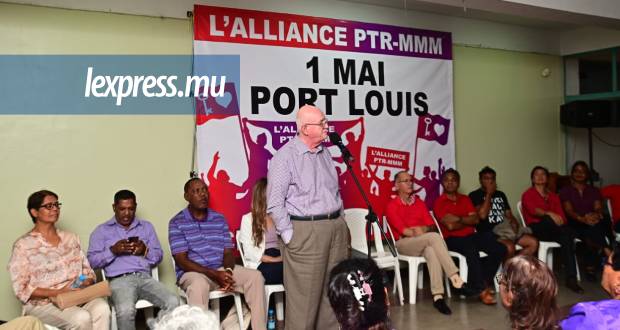Publicité
How Narendra Modi could usher in India's greatest foreign policy era yet
Par
Partager cet article
How Narendra Modi could usher in India's greatest foreign policy era yet

As the Indian general elections draw to a close, the BJP looks set for a big win. Speculation abounds on the enigmatic Narendra Modi’s foreign policy vision. Comparisons with Atal Bihari Vajpayee have already begun, and it is likely that Modi will build upon that great legacy. While analysts debate the characteristics of the Vajpayee legacy and what that would mean for Bangladesh, for the United States and other countries, few highlight the important change Modi and the Vajpayee legacy could bring to the big picture – India’s grand strategy.
Presently, the grand strategy of Indian foreign policy, or lack thereof, is characterised by “strategic autonomy”. The phrase is often used as a shield, and equally often disregarded by the government. When it comes to defence deals with the US, India does not cooperate, citing “strategic autonomy”, but when it comes to increasing exercises in the Indian Ocean, India shies away because it might anger the Chinese, truly a sign of autonomy.
The hypocrisy of usage is not the main problem. The fundamental problem with “strategic autonomy” is that it does not give India’s foreign policy any direction. It does not help prioritise one goal over the other. As said by one scholar, “strategic autonomy” for an independent sovereign state is no policy at all, but simply an inherent attribute of its foreign policy.
Academics have struggled to make “strategic autonomy” a conceptual guiding principle of Indian foreign policy, with little success. It is debatable whether strategic autonomy helped India create more balance or more confusion in its foreign policy. What are India’s national interests and foreign policy goals? In the last decade, this question has not been answered concretely.
The onus for this lack of direction lies with India’s political masters. It is not that the UPA did not pay attention to foreign policy. Some major foreign policy milestones were reached, at least in their first term. However, a great ideological battle between realpolitik and idealism plagues India’s leaders. This is where a key element of Vajpayee’s legacy, and possibly Modi’s legacy, as prime minister becomes significant.
Vajpayee’s achievements in foreign policy were multi-fold. He created a historic level of Indian engagement with the world – turning around the US-India relationship, diplomatic overtures with Pakistan, agreements with Iran, UK and other countries. He showed great pragmatism in de-linking the border issues from engagement with China and Pakistan. What he is most famous for, of course, is making India a nuclear power. This very act underscores the greatest contribution Vajpayee brought to Indian foreign policy – strategic direction.
Vajpayee critiques are quick to point out that it wasn’t him who started India on the path to becoming a nuclear power. It was Indira Gandhi who initiated nuclear weapons research at the Bhabha Atomic Research Center (BARC) in 1972 and Prime Minister PV Narasimha Rao came very close to holding nuclear tests in 1993.
However, India’s leaders could never resolve the ideological dilemma of choosing between India’s need for security and hard power versus the global need for peace and disarmament. This was a tendency that plagued India since Nehruvian times, and, arguably, led India to the humiliating defeat of 1962 against China.
Atal Bihari Vajpayee’s greatest legacy was in decisively resolving this dilemma and making the pursuit of hard power the basis of Indian foreign policy. This brought great coherence and confidence in India’s diplomacy.
There is hope that Modi could usher in a similar revival in Indian foreign policy. With his track record of being a clear, decisive administrator, he could resolve ideological dilemmas and set clear goals for Indian foreign policy. What these goals should be is the subject of a different discussion. What is interesting to note, however, is that Modi’s legacy might be more powerful because of another possible advantage: a strong government.
If the BJP, with a few allies, wins the landmark 275 seats it hopes for and is projected to win, two things will happen. First, major Cabinet positions will go to the BJP, making it easy to coordinate the different arms of government. Second, the BJP and few allies will achieve a comfortable two-third majority in Parliament, making it easy to pass legislation. Not having to deal with an excessive number of allies and coalition partners will create the kind of enabling environment for policy-making that hasn’t been seen in over a decade.
Thus, Narendra Modi has an opportunity to play to his avowed strength and leave a new legacy – of executing foreign commitments efficiently. This could be the real game-changer for Indian foreign policy. We might no longer have stalemates like the US-India nuclear deal – born of great struggle and fanfare but stalled for five years due to a civil liability clause. Efficient execution could overhaul India’s performance and image on a variety of global issues – climate change, counter-terrorism, border defence, trade issues and others.
If Modi can make India move from strategic autonomy to strategic direction, from policy paralysis to efficient execution, he might usher in India’s greatest era on the global stage yet.
Publicité
Les plus récents






